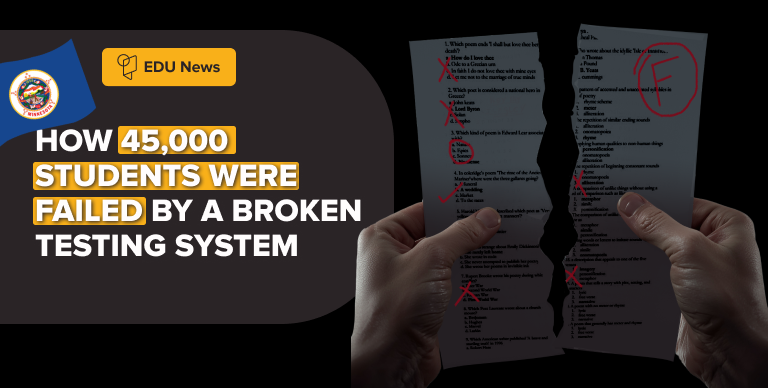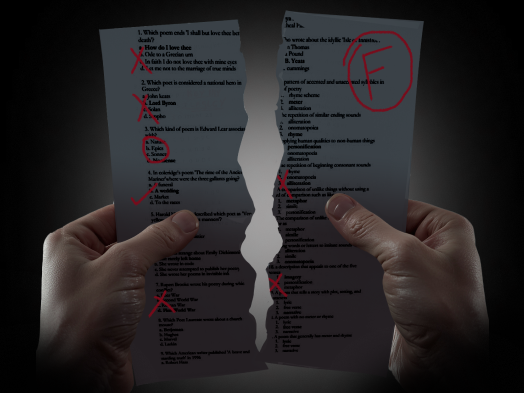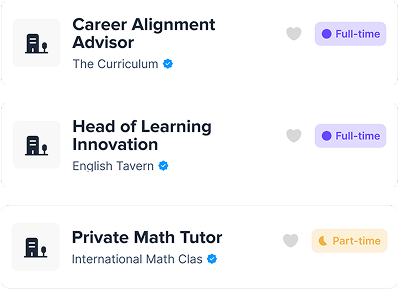Imagine This
You’re told you didn’t graduate—because of a mistake.
In the year 2000, that nightmare became reality for 45,000 students in Minnesota. A scoring error on the state’s Basic Standards Test in math misled thousands into thinking they had failed. The truth? Many had passed all along.
The Error That Changed Lives
The scandal began when a lawyer asked to see his daughter’s test. He found she had passed, even though the state told her she failed.
That discovery cracked the case wide open:
- Over 45,000 students were affected
- Nearly 8,000 were wrongly told they failed
- Some missed graduation, lost jobs, or delayed life plans
The cause? A misprogrammed answer key paired with a flawed test question.
This wasn’t just a glitch. It was a systemic breakdown with human consequences.
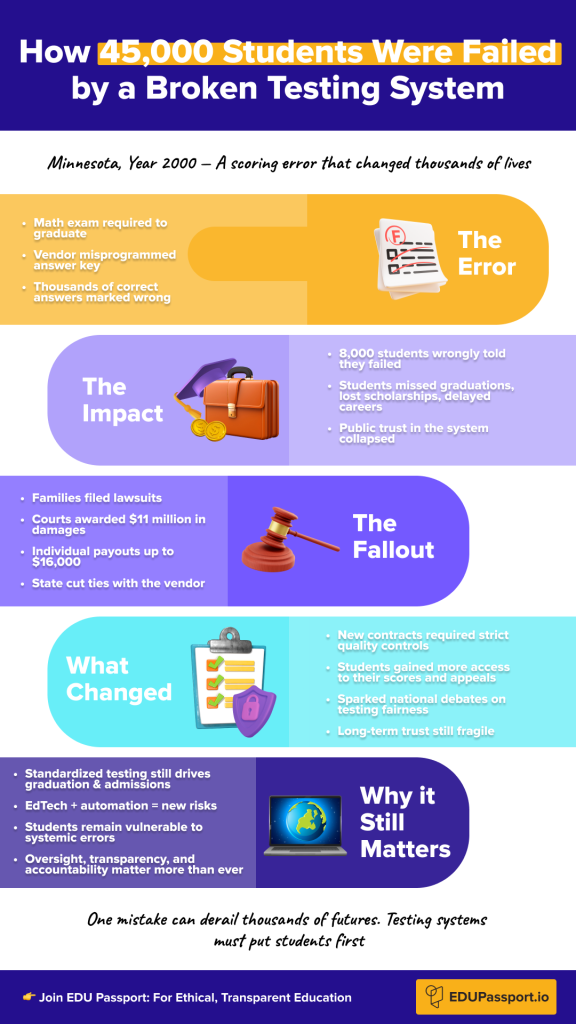
An $11 Million Wake-Up Call
Families demanded justice. Legal action followed.
- The testing company faced lawsuits
- Courts awarded $11 million in damages
- Some students received up to $16,000 each
- The Minnesota Department of Education cut ties with the vendor
This wasn’t only about money. It was about accountability in a system that had let students down.
Policy Overhaul: What Changed?
Minnesota didn’t just move on—it restructured.
- Contracts with new vendors came with tighter quality controls
- Transparency standards gave students more access to their own scoring
- The incident sparked national debates about testing accuracy and fairness
But the biggest shift was intangible: trust. Once broken, it proved hard to rebuild.
Why This Still Matters Today
This happened 25 years ago, but its lessons are urgent today:
- Standardized testing still shapes graduation, admissions, and funding
- Automation in EdTech has made error-proofing both vital and complex
- Students remain at the mercy of systems they don’t control
When systems fail, students pay the price. Most don’t have the resources—or a lawyer-parent—to uncover errors.
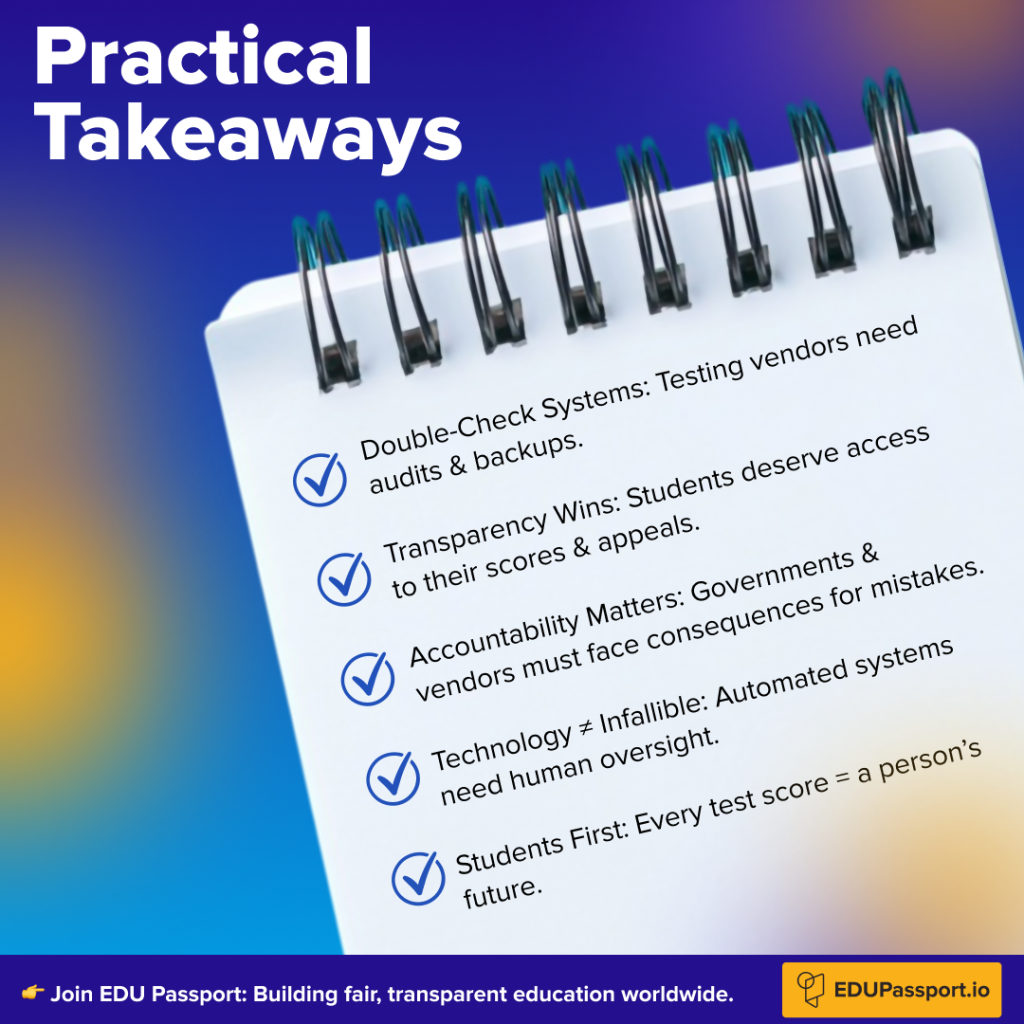
EDU Passport’s Take
Systems should serve students, not the other way around.
This case proves why oversight, transparency, and responsibility can’t be optional. Every score reflects a person’s future. Mistakes don’t just affect numbers. They affect lives.
At EDU Passport, we champion ethical, transparent, and trustworthy education systems. Because education should never be another broken system students are forced to navigate.
Let’s Talk About It
Have you or your school faced testing errors or unfair assessments?
Share this story with educators, policymakers, or assessment leaders. The more we discuss accountability in education, the stronger our systems become. Share on socials and tag #edupassport or share directly on our EDU Feed- where we talk education 24/7!
EDU Passport: For Ethical, Transparent Education
We stand with students, educators, and institutions pushing for better systems.




